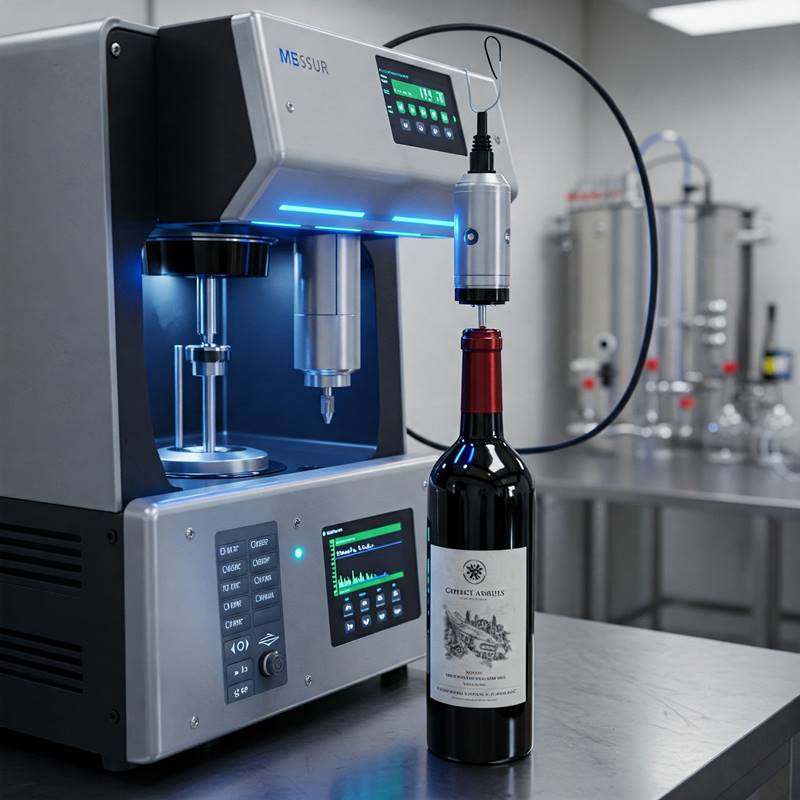Study reveals AI's growing role in alcoholic beverage industry
NABCA report highlights transformative potential and challenges
2025-02-27

A recent report issued by the National Alcohol Beverage Control Association, based on insights from Brown-Forman's AI strategy specialist Amit Parulekar, highlights how artificial intelligence is reshaping the alcoholic beverage industry. From vineyard monitoring to inventive marketing, the technology has become integral for producers seeking to improve efficiency, reduce waste, and personalize offerings. In the production process, algorithms can forecast grape quality by analyzing climate data, allowing wineries to better anticipate challenges and refine farming techniques. Distilleries benefit from real-time monitoring systems that automate temperature control and fermentation times, helping maintain consistent quality across batches.
On the marketing side, companies are using AI to tailor promotions and recommendations based on individual consumer preferences, a trend that has gained traction alongside the development of chatbot technology and personalized product suggestions. There is also growing experimentation with AI-generated concepts for branding and advertising, offering a level of creativity that was unthinkable until recently. Consumer experiences are evolving in parallel, thanks to tools that match beverage flavor profiles with personal taste, fueling interest in new varieties and unique pairings.
The NABCA report underscores several advantages for businesses that implement AI. One clear benefit is resource optimization, as more accurate yield predictions help wineries avoid excess stock or underproduction. Machine learning also analyzes market behavior on a large scale, enabling producers to identify buying patterns and adapt their portfolios more swiftly. Automated data analysis can reveal flaws in production or logistics before they escalate into more costly problems, which is particularly important for products such as wine and spirits that rely on consistency and reputation. Yet the adoption of these new technologies does come with hurdles. A shortage of comprehensive, well-structured data remains a challenge, especially for smaller companies that rely on legacy systems. Longstanding traditions in wine and spirits production can also slow acceptance, since many artisans believe the character of their product springs from experience and intuition rather than algorithms. Regulators are closely watching developments, due to concerns that AI-driven product creation or marketing might raise questions of accountability or lead to potentially misleading advertising. There is also the risk that analyzing past consumer preferences might replicate existing trends instead of encouraging genuine innovation, resulting in diminished diversity and creativity in the marketplace.
The study advocates a carefully planned approach to AI implementation, beginning with specific goals such as more accurate inventory control or better demand prediction. Building a reliable data infrastructure is presented as a prerequisite, followed by investment in training employees to work alongside these tools. Bringing together multidisciplinary teams of tech specialists, data analysts, and industry professionals ensures a balance between sophisticated technology and the artisanal sensibility that distinguishes many wines and spirits. By focusing first on pilot projects, businesses can gauge the impact of AI on core operations before expanding further. Through strategic alignment of human expertise with machine intelligence, the alcoholic beverage sector has the opportunity to refine production, boost market engagement, and deliver a more customized experience for consumers, all while preserving the heritage and craftsmanship at the heart of the industry.
Founded in 2007, Vinetur® is a registered trademark of VGSC S.L. with a long history in the wine industry.
VGSC, S.L. with VAT number B70255591 is a spanish company legally registered in the Commercial Register of the city of Santiago de Compostela, with registration number: Bulletin 181, Reference 356049 in Volume 13, Page 107, Section 6, Sheet 45028, Entry 2.
Email: [email protected]
Headquarters and offices located in Vilagarcia de Arousa, Spain.